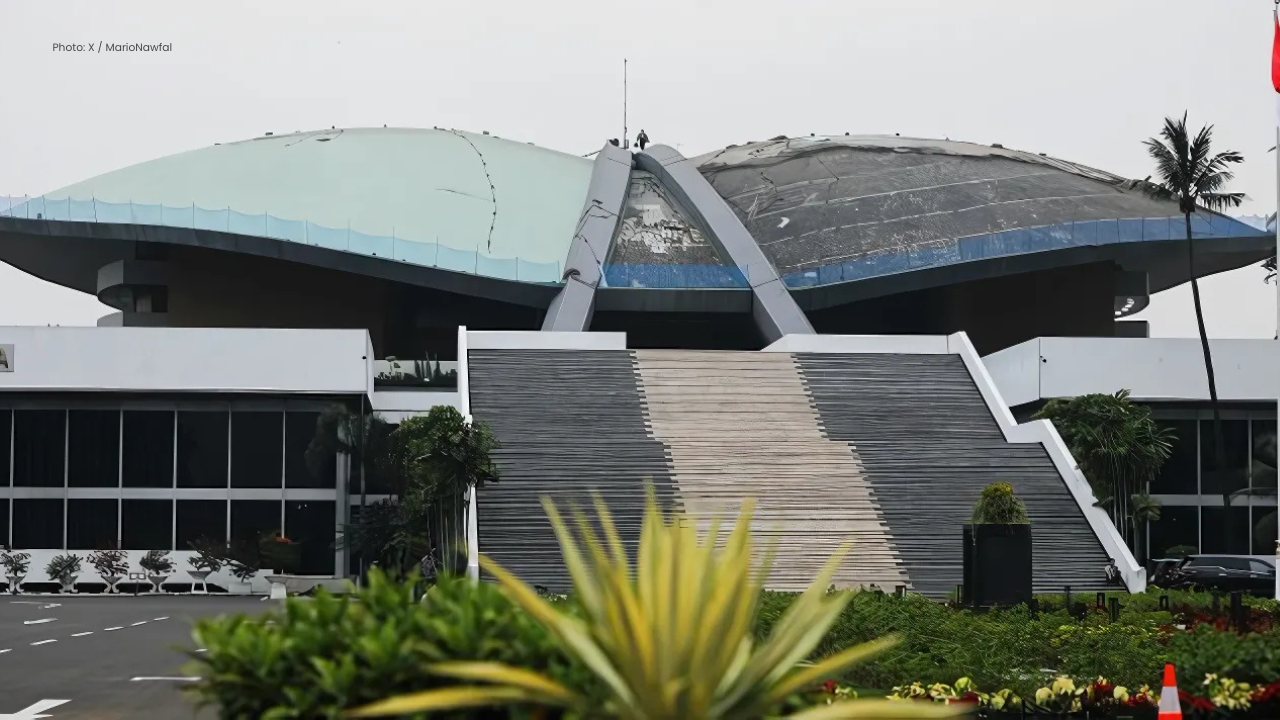You have not yet added any article to your bookmarks!

Join 10k+ people to get notified about new posts, news and tips.
Do not worry we don't spam!

Post by : Sameer Farouq
Indonesia is preparing for a larger government budget in 2026, with spending set to rise under President Prabowo Subianto’s leadership. The country’s parliament is expected to approve the new fiscal plan later this month, giving the government more space to push economic growth while still keeping the deficit under control.
The budget decision comes at a sensitive time. Anti-government protests that began in August have unsettled markets, and the sudden dismissal of Finance Minister Sri Mulyani Indrawati has created worries among investors about whether the government will remain disciplined with its finances.
A parliamentary fiscal oversight panel has approved total government spending of 3,842.7 trillion rupiah ($233 billion) for 2026. This amount is 56.2 trillion rupiah higher than the proposal President Prabowo submitted in August, and about 9% larger than estimated spending in 2025.
The plan sets the budget deficit at 2.68% of GDP, a slight increase compared to this year’s forecast of 2.78% of GDP. Importantly, the figure remains below Indonesia’s legal deficit ceiling of 3%.
Revenue for 2026 has also been revised upward. The new revenue target is 3,153.6 trillion rupiah, which is about 10% higher than estimated revenues for 2025.
The full parliament is expected to vote on the budget on September 23. Since Prabowo’s coalition controls a majority of seats, approval is considered highly likely.
The original proposal was prepared by former finance minister Sri Mulyani before she was removed from office. The new finance minister, Purbaya Yudhi Sadewa, has defended the slightly wider deficit, saying it is still safe and necessary to support higher growth. “It’s still below 3% of GDP and is needed to create higher economic growth. Don’t worry, we will be prudent,” Purbaya assured lawmakers.
Prabowo has set an ambitious target for Indonesia’s economic growth. For 2026, the goal is 5.4% GDP growth. Over his five-year term, which runs until 2029, Prabowo hopes to raise growth to as high as 8%.
Economists say the timing may help. Global financial conditions are expected to remain favorable as the U.S. Federal Reserve is likely to maintain a supportive monetary policy until at least mid-2026. This gives Indonesia room to borrow and spend without facing high interest costs.
Victor Matindas, an economist with Bank Central Asia, noted: “The government is seizing the chance to pursue policies that drive growth with the wider fiscal gap.”
Experts warn that Indonesia cannot rely too heavily on borrowing to fund the wider gap between spending and revenue. Telisa Falianty, an economist from the University of Indonesia, stressed the need to increase non-tax revenues instead of depending too much on bonds.
Without strong revenue growth, a bigger deficit could eventually strain public finances.
One area of debate in the budget has been funding for local governments. In the revised plan, regional transfers will increase to 693 trillion rupiah, up from the original proposal of 650 trillion. However, this is still about 20% less than what regions received in 2025.
Regional leaders had complained that the earlier proposal would force them to raise local taxes, including land and building taxes, to cover shortfalls. The new increase is meant to calm those concerns and maintain social stability.
Finance Minister Purbaya promised that even with smaller transfers compared to 2025, the central government in Jakarta would spend more on nationwide development programs to balance the difference.
Despite the adjustments, the budget for Prabowo’s priority programs remains unchanged.
A major flagship initiative is the free meals program for students and pregnant women, with an allocation of 335 trillion rupiah.
Defense spending is also high on the agenda, with a budget of 335.3 trillion rupiah as set in the original plan.
Officials say these priorities reflect Prabowo’s twin goals of boosting human development and strengthening national security.
The new budget comes amid political tensions. Anti-government protests that began in August have raised questions about the government’s direction. Many investors are also concerned after the removal of Sri Mulyani, a finance minister widely respected for her commitment to fiscal discipline.
Prabowo’s decision to expand spending may reassure citizens hoping for faster growth, but it could also raise concerns about whether the government is spending responsibly.
Indonesia is Southeast Asia’s largest economy, and its policies affect the region as a whole. The challenge for Prabowo’s government will be to boost growth without weakening financial stability.
The budget shows a careful balancing act: spending more on programs and development, but keeping the deficit below the legal 3% ceiling.
If managed carefully, the plan could help lift Indonesia toward its ambitious growth targets. But if revenues do not rise as expected, the country may face pressure from rising debt.










Dhurandhar Day 27 Box Office: Ranveer Singh’s Spy Thriller Soars Big
Dhurandhar earns ₹1117 crore worldwide by day 27, becoming one of 2026’s biggest hits. Ranveer Singh

Hong Kong Welcomes 2026 Without Fireworks After Deadly Fire
Hong Kong rang in 2026 without fireworks for the first time in years, choosing light shows and music

Ranveer Singh’s Dhurandhar Hits ₹1000 Cr Despite Gulf Ban Loss
Dhurandhar crosses ₹1000 crore globally but loses $10M as Gulf nations ban the film. Fans in holiday

China Claims India-Pakistan Peace Role Amid India’s Firm Denial
China claims to have mediated peace between India and Pakistan, but India rejects third-party involv

Mel Gibson and Rosalind Ross Split After Nearly a Decade Together
Mel Gibson and Rosalind Ross confirm split after nearly a year. They will continue co-parenting thei

Rashmika Mandanna, Vijay Deverakonda Set to Marry on Feb 26
Rashmika Mandanna and Vijay Deverakonda are reportedly set to marry on February 26, 2026, in a priva